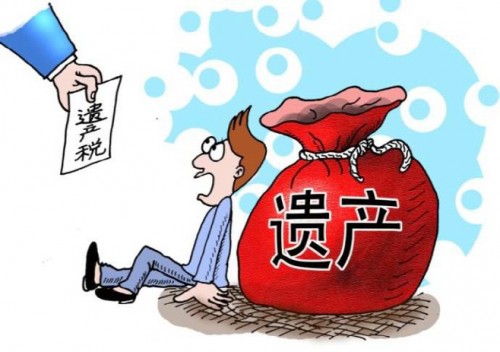By Hong Soon-do, Beijing correspondent, AsiaToday – China is considering to impose inheritance and gift taxes. It could even be introduced within a few years at the soonest. As a result, many of the wealthy class, who may face a miserable tax bomb, are already making moves in response.
China is originally famous for collecting taxes harshly. According to a Beijing source familiar with tax-related information on Thursday, the tax burden is close to 70% of GDP. It is much higher than that of Korea, which accounts to 25%. However, most of them are indirect taxes and direct taxes such as inheritance tax and gift tax are uncommon.
 China is considering to impose inheritance and gift taxes. Since it believes it needs to solve the widening gap between the rich and the poor. it is expected to make a decision soon. China is considering to impose inheritance and gift taxes. Since it believes it needs to solve the widening gap between the rich and the poor. it is expected to make a decision soon. |
The absence of such system is deeply related to the country's socialist economic system which did not allow private property. However, the situation has changed completely now that the socialist market economy is completed through 40 years of reform and open-door policy. In fact, China has more billionaires than US. In order to solve the gap between rich and poor, it is time not to hesitate to introduce inheritance and gift taxes.
Besides, indirect tax rates are uniform, which makes it extremely disadvantageous to the poor, rather than the rich. This is why there are voices among the poor that they feed the rich. Let's take a look at tax on products. For a premium cigarette of 100 yuan (approx. US$15), you have to pay a whopping 90 yuan for tax, including VAT (value added tax), consumption tax, business tax, and enterprise income tax. Vehicles that have become something essential for middle class are another good examples. If you buy a car worth 200,000 yuan, you have to pay a 38% tax. Everyone, rich and poor, has to pay it. Since most people in China bear a heavy tax burden, it seems that China is a paradise for the wealthy. The public discontent will inevitably grow unless China breaks the current situation.
Besides, indirect tax rates are uniform, which makes it extremely disadvantageous to the poor, rather than the rich. This is why there are voices among the poor that they feed the rich. Let's take a look at tax on products. For a premium cigarette of 100 yuan (approx. US$15), you have to pay a whopping 90 yuan for tax, including VAT (value added tax), consumption tax, business tax, and enterprise income tax. Vehicles that have become something essential for middle class are another good examples. If you buy a car worth 200,000 yuan, you have to pay a 38% tax. Everyone, rich and poor, has to pay it. Since most people in China bear a heavy tax burden, it seems that China is a paradise for the wealthy. The public discontent will inevitably grow unless China breaks the current situation.
This has naturally put the rich on alert to take measures. Their most typical plan is leaving an early inheritance. Not a few rich people have already done this to prepare for the unexpected misfortune. Immigration and draining money as it were foreign investment have been some of other options for them. No wonder, investment immigration is one of the hottest issues among Chinese rich people in recent years. I could say that good old days are gone now for Chinese rich people.
#China #inheritance tax #gift tax
Copyright by Asiatoday
Most Read
-
1
-
2
-
3
-
4
-
5
-
6
-
7





















